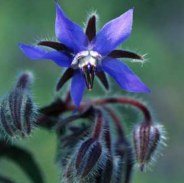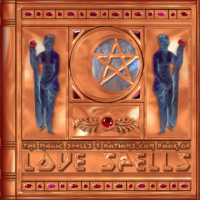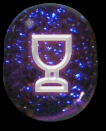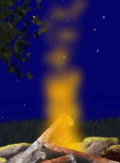Borage
The Borage, with its gallant blue flower, is cultivated in our gardens as a pot herb, and is associated in our minds with bees and claret cup. It grows wild in abundance on open plains where the soil is favourable, and it has a long-established reputation for cheering the spirits.
Added Jun 13, 2010
| 7,655 Reads
Botanically, it is the Borago officinalis, this title being a corruption of cor-ago, i.e., cor, the heart, ago, I stimulate—quia cordis affectibus medetur, because it cures weak conditions of the heart. An old Latin adage says: Borago ego gaudia semper ago—"I, Borage, bring always courage"; or the name may be derived from the Celtic, Borrach, "a noble person." This plant was the Bugloss of the older botanists, and it corresponds to our Common Bugloss, so called from the shape and bristly surface of its leaves, which resemble bous-glossa, the tongue of an ox. Chemically, the plant Borage contains potassium and calcium combined with mineral acids. The fresh juice affords thirty per cent., and the dried herb three per cent. of nitrate of potash. The stems and leaves supply much saline mucilage, which, when boiled and cooled, likewise deposits nitre and common salt. These crystals, when ignited, will burn with a succession of small sparkling explosions, to the great delight of the schoolboy. And it is to such saline qualities the wholesome, invigorating effects and the specially refreshing properties of the Borage are supposed to be mainly due. For which reason, the plant, "when taken in sallets," as says an old herbalist, "doth exhilarate, and make the mind glad," almost in the same way as a bracing sojourn by the seaside during an autumn holiday. The flowers possess cordial virtues which are very revivifying, and have been much commended against melancholic depression of the nervous system. Burton, in his Anatomy of Melancholy (1676), wrote with reference to the frontispiece of that book:— "Borage and Hellebore fill two scenes, "The sprigs of Borage," wrote John Evelyn, "are of known virtue to revive the hypochondriac and cheer the hard student." According to Dioscorides and Pliny, the Borage was that famous nepenthe of Homer which Polydamas sent to Helen for a token "of such rare virtue that when taken steep'd in wine, if wife and children, father and mother, brother and sister, and all thy dearest friends should die before thy face, thou could'st not grieve, or shed a tear for them." "The bowl of Helen had no other ingredient, as most criticks do conjecture, than this of borage." And it was declared of the herb by another ancient author: Vinum potatum quo sit macerata buglossa moerorum cerebri dicunt auferre periti:— "To enliven the sad with the joy of a joke, The Romans named the Borage Euphrosynon, because when put into a cup of wine it made the drinkers of the same merry and glad. Parkinson says, "The seed of Borage helpeth nurses to have more store of milk, for which purpose its leaves are most conducing." Its saline constituents promote activity of the kidneys, and for this reason the plant is used in France to carry off catarrhs which are feverish. The fresh herb has a cucumber-like odour, and when compounded with lemon and sugar, added to wine and water, it makes a delicious "cool tankard," as a summer drink. "A syrup concocted of the floures," said Gerard, "quieteth the lunatick person, and the leaves eaten raw do engender good blood." Of all nectar-loving insects, bees alone know how to pronounce the "open sesame" of admission to the honey pots of the Borage.
Added Jun 13, 2010
| 7,655 Reads
Share The Magic ...
The GoE MONEY!!! Course - A Course In Real MONEY MAGIC!
|





















